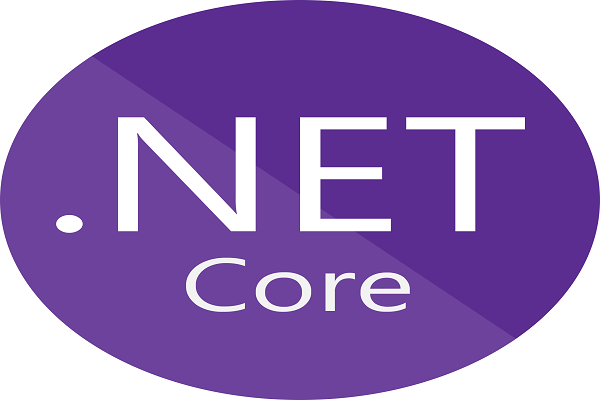What do you understand by the .Net Assembly Manifest? Where can we save or store manifest? Is Assembly Identity made up of? What kind of data can be saved in the manifest?
Microsoft .Net Framework Definition: Microsoft .Net Framework is a software development framework for making and operating Windows applications. To create desktop and web applications, the .Net Framework involves developer tools, programming languages, and libraries. It's also used to make games, weRead more
Microsoft .Net Framework Definition:
Microsoft .Net Framework is a software development framework for making and operating Windows applications. To create desktop and web applications, the .Net Framework involves developer tools, programming languages, and libraries. It’s also used to make games, websites, and web services.
The purpose of the Dot Net Framework was to design applications that would operate on the Windows Platform. In the year 2002, the .Net Framework was released. The 1.0 version of the .Net Framework. Microsoft is a software company. Since then, the Dot Net Framework has progressed significantly, and the latest version is 4.7.2 of the .Net Framework.
Both form-based and web-based applications can be built with the Net Framework. They can also be used to create web services.
Visual Basic and C# are part of the programming languages supported by the Framework. As a result, developers can pick and choose the language in which to make the demanding application.
The Architecture of the .NET Framework:
The .Net Framework Architecture is a programming paradigm for the.Net platform that provides an execution environment and interface with numerous programming languages to make developing and deploying Windows and desktop applications easier. It is made up of reusable components and class libraries.
Design Principles for the .NET Framework:
We will now cover the design principles in this .Net Architecture tutorial.
The design principles of the dot net framework are as follows. The .Net Framework is what makes developing .Net applications so important:
1) Backward compatibility – The .Net framework has a lot of backward compatibilities. Assume you have an application that was built using an older version of the.
2) Portability — Applications created with the .Net framework can run on any Windows platform.
3) Security – The .NET Framework has a solid security system in place. The built-in security mechanism aids in application assessment and verification.
4) Memory management — All memory management is handled by the Common Language runtime. The .Net Framework includes the ability to see resources that aren’t being used by an active program.
5) Simplified deployment – The .Net framework includes tools for packaging and deploying applications created with it.
See less

.Net Assembly Manifest Definition: Manifest stands for Assemblies. Metadata refers to data about data or machine-readable information about a resource. MetaData: Metadata is a set of information that indicates how the pieces of an assembly are related to one another and the relationship between themRead more
.Net Assembly Manifest Definition:
Manifest stands for Assemblies. Metadata refers to data about data or machine-readable information about a resource.
MetaData: Metadata is a set of information that indicates how the pieces of an assembly are related to one another and the relationship between them. It provides the relationships and dependencies among the Assembly’s components, as well as version information, scope information, and the Assembly’s security permits.
Metadata for an assembly comprises type definitions, version information, external assembly references, and other specified information.
With Microsoft Intermediate Language (MSIL) code, the Assembly Manifest can be saved in a Portable Executable (PE) file. Using assembly attributes in our code, we may add or alter certain information in the Assembly Manifest. The Assembly Manifest can be stored in either a Microsoft Intermediate Language (MSIL) coded PE file (.exe or.dll) or a standalone PE file that solely contains assembly manifest information.
You can see the manifest information for any managed DLL with ILDasm.
Metadata: The name of each type, its visibility/scope, its base class, the implemented interfaces, methods, and their scope, and each method’s parameters, type’s attributes, and so on are all described in the metadata for the assembly classes, interfaces, enums, structs, and their contained namespaces.
Manifest: The term “manifest” refers to the act of putting something together. Name of the Assembly, its version number, culture, strong name, a list of all files, Type references, and referenced assemblies.
The Assembly’s identity is made up of the assembly name, version number, culture, and strong name information.
The following data is saved in Assembly Manifest:
- The name of the Assembly is specified via a text string.
- The main and minor version numbers, as well as the revision and build numbers, are all included in the version number. These numbers and information are used by the common language runtime to enforce version policy.
- If the Assembly has been given a strong name, the public key from the publisher is required.
- The following is a list of the files included in the Assembly: It keeps track of the hash of each file in the Assembly as well as the file’s name.
- This information is utilized for types exported from the Assembly. The runtime environment uses this data to map a type reference to the declaration and implementation file.
- The list of additional assemblies that are statically referred to by the Assembly is included in the information about referenced assemblies. If the Assembly is strongly named, each of these references contains the name and metadata of the dependent Assembly, as well as the Assembly public key.
See less